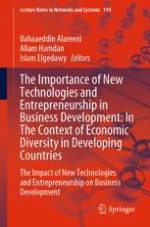2021 | OriginalPaper | Buchkapitel
The Accomplishment of Knowledge Delivery Towards Islamic Banking Employees
verfasst von : Adibah Alawiah Osman, Azwan Abdullah, Zatul Karamah Ahmad Baharul Ulum
Aktivieren Sie unsere intelligente Suche, um passende Fachinhalte oder Patente zu finden.
Wählen Sie Textabschnitte aus um mit Künstlicher Intelligenz passenden Patente zu finden. powered by
Markieren Sie Textabschnitte, um KI-gestützt weitere passende Inhalte zu finden. powered by
